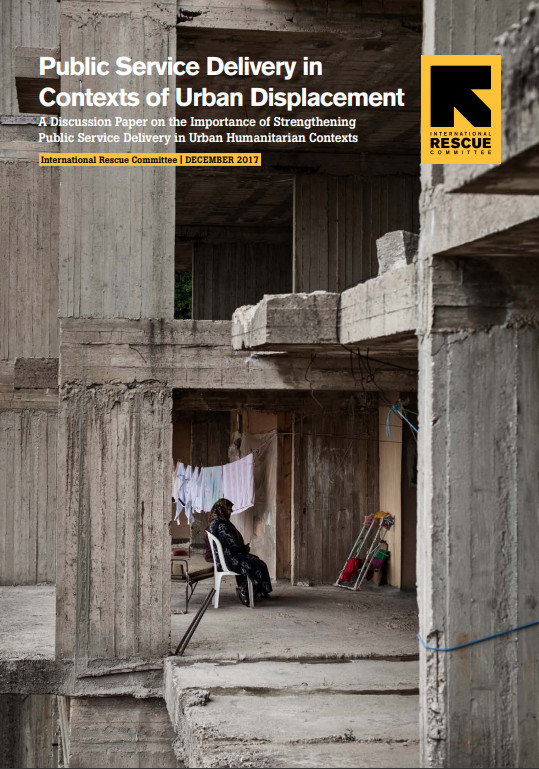Public service delivery in contexts of urban displacement
 |
rapport Dec 2017 ; 44 pages
Aut. Jihad Farah & Noémie Kouider & Elie Mansour &
Ed. IRC - New York
Téléchargeable sous format: PdF
Téléchargeable chez l'éditeur
Page de présentation d'un éditeur
Abstract:
When displaced persons move to urban areas, they often settle in more marginalised and underserved neighborhoods. Public service providers in these areas are often already struggling to adequately meet the host population’s pre-crisis demand for services, and an influx of refugees and IDPs into these neighborhoods can strain existing service delivery infrastructure. Humanitarian actors, operating within their traditional methods of direct engagement, often respond by establishing parallel structures for service delivery, which may ultimately compromise indigenous mechanisms for service provision. Concurrently, efforts focused exclusively on displaced persons may ultimately create new tensions between displaced and host communities. The traditional “direct service delivery” approach to a humanitarian response is often insufficient or even problematic in urban contexts, necessitating a change in tactic.
This paper discusses how humanitarian actors may help strengthen existing service delivery infrastructures and assist local service providers to meet increasing demand from displaced populations. The challenges of integrating humanitarian intervention with existing mechanisms for urban service delivery are significant. Interventions often target specific sectors rather than entire systems, adopt an overly restrictive timeframe, and fail to account for complex political realities. Yet, as a case study from Lebanon shows, projects led by humanitarian actors that help to address the service needs of both host and refugee populations can effectively increase service providers’ resilience to future crises and help to lower social tensions within the community. This experience suggests that humanitarian actors, operating at the nexus of short-term humanitarian relief and long-term development goals, can benefit from a greater focus on strengthening local channels for the provision of services. In turn, this can support institutional development that will outlive crisis-based humanitarian intervention.
Mot clef: |
Pays concerné: |
Editeur/Diffuseur: |
|
IRC
-
International Rescue Committee - New York - Etats Unis |
En cas de lien brisé, nous le mentionner à communication@pseau.org